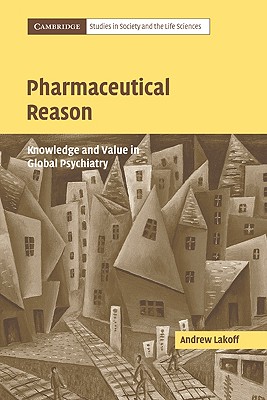When a French biotechnology company seeks patients in Buenos Aires with bipolar disorder for its gene discovery program, they have unexpected trouble finding enough subjects for the study. In Argentina, the predominant form of mental health expertise - psychoanalysis - does not recognize the legitimacy of bipolar disorder as a diagnostic entity. This problem points to a broader set of political and epistemological debates in global psychiatry. Drawing from an ethnography of psychiatric practice in Buenos Aires, Andrew Lakoff follows the contested extension of novel techniques for understanding and intervening in mental illness. He charts the globalization of the new biomedical psychiatry, and illustrates the clashes, conflicts, alliances, and reformulations that take place when psychoanalytic and biological models of illness and cure meet. Highlighting the social and political implications that new forms of expertise about human behavior and thought bring, Lakoff presents an arresting case study that will appeal to scholars and students alike.
| FindBook |
有 1 項符合
Pharmaceutical Reason: Knowledge and Value in Global Psychiatry的圖書 |
 |
Pharmaceutical Reason: Knowledge and Value in Global Psychiatry 作者:Lakoff 出版社:Cambridge University Press 出版日期:2006-01-01 語言:英文 規格:平裝 / 206頁 / 22.9 x 15.5 x 1.5 cm / 普通級 |
| 圖書館借閱 |
| 國家圖書館 | 全國圖書書目資訊網 | 國立公共資訊圖書館 | 電子書服務平台 | MetaCat 跨館整合查詢 |
| 臺北市立圖書館 | 新北市立圖書館 | 基隆市公共圖書館 | 桃園市立圖書館 | 新竹縣公共圖書館 |
| 苗栗縣立圖書館 | 臺中市立圖書館 | 彰化縣公共圖書館 | 南投縣文化局 | 雲林縣公共圖書館 |
| 嘉義縣圖書館 | 臺南市立圖書館 | 高雄市立圖書館 | 屏東縣公共圖書館 | 宜蘭縣公共圖書館 |
| 花蓮縣文化局 | 臺東縣文化處 |
|
|
圖書介紹 - 資料來源:博客來 評分:
圖書名稱:Pharmaceutical Reason: Knowledge and Value in Global Psychiatry
|











